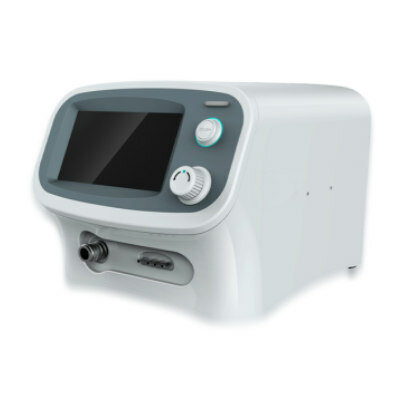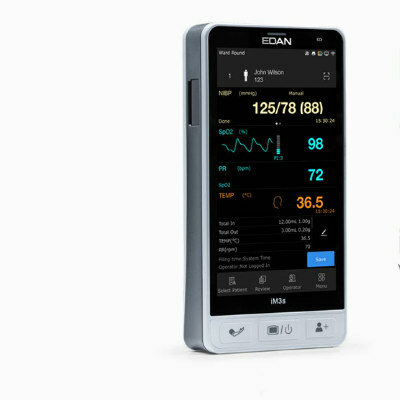Patch Wearable Cardioverter-Defibrillator found Safe and Effective for Patients at Risk of Sudden Cardiac Arrest
|
By HospiMedica International staff writers Posted on 07 Aug 2024 |
.jpg)
Sudden cardiac arrest (SCA) outside of hospital settings continues to pose a major challenge in the United States and Europe, with survival rates hovering around 10%. While traditional wearable cardioverter defibrillators (WCDs) have proven effective in treating SCA, one of the leading causes of death in these regions, issues such as discomfort and lack of patient adherence have hindered their broad acceptance and contributed to preventable fatalities. Now, a new study has demonstrated the safety and efficacy of a new type of device, a water-resistant patch–wearable cardioverter-defibrillator (P-WCD), which incorporates a machine learning algorithm to enhance patient compliance and protection against SCA.
Element Science’s (San Francisco, CA, USA) Jewel P-WCD is a cutting-edge, water-resistant wearable defibrillator that detects and treats life-threatening arrhythmias in patients at temporary high risk for SCA. This device monitors the heart continuously and intervenes during critical arrhythmias. It is designed to offer consistent protection throughout daily activities, including showering, sleeping, and engaging in moderate exercise. The associated Jewel Mobile App supports efficient patient management by sending therapy data to healthcare providers almost instantaneously. The design of the Jewel P-WCD focuses on improving user compliance, which has been clinically demonstrated to enhance the chances of delivering lifesaving therapy when needed, thus potentially increasing survival rates from out-of-hospital SCA—a significant public health concern in Europe.
The Jewel IDE Study, a prospective, single-arm study carried out across 30 U.S. sites, involved participants at risk of SCA due to ventricular tachycardia or ventricular fibrillation who were either ineligible for or declined an implantable defibrillator. The findings published in Journal of the American College of Cardiology indicate that the novel P-WCD, an adhesive-based wearable defibrillator, achieved its primary and secondary safety and effectiveness targets with no fatalities attributed to noncompliance. These findings suggest that the P-WCD could serve as an effective alternative for patients recommended for WCD therapy.
Related Links:
Element Science
Latest Critical Care News
- Mass Manufactured Nanoparticles to Deliver Cancer Drugs Directly to Tumors
- World’s Smallest Pacemaker Fits Inside Syringe Tip

- AI-Powered, Internet-Connected Medical Devices to Revolutionize Healthcare, Finds Study
- Starfish-Inspired Wearable Tech Enables Smarter Heart Monitoring
- AI Eye Scans Could Help Identify Heart Disease and Stroke Risk
- Digital Heart Twin Improves Diagnosis and Treatment of Cardiac Arrhythmias
- First-Of-Its-Kind AI-Powered Probability Scoring System Assesses Heart Failure with Preserved Ejection Fraction
- AI-Assisted Colonoscopy Detects More Polyps but Has Modest Effect on Cancer Risk
- Wearables Could Reduce Need for Continuous Blood Thinners in Patients with Atrial Fibrillation
- AI Model Provides Real-Time Sepsis Risk Alerts for Improving ICU Patient Survival
- AI Algorithm Improves Intravenous Nutrition for Premature Babies
- Smart Mirror Generates AI-Powered Health Insights by Analyzing Facial Blood Flow
- Painless Diabetes Patch to Replace Needle Pricks

- Sensory T-Shirt Monitors Patient’s Vitals After Urological Surgery for Cancer
- Super-Sensitive Radar Technology Warns of Serious Heart Issues
- Thermal Imaging Could Accurately Track Vital Signs for Early Disease Detection
Channels
Surgical Techniques
view channel
New Transcatheter Valve Found Safe and Effective for Treating Aortic Regurgitation
Aortic regurgitation is a condition in which the aortic valve does not close properly, allowing blood to flow backward into the left ventricle. This results in decreased blood flow from the heart to the... Read more
Minimally Invasive Valve Repair Reduces Hospitalizations in Severe Tricuspid Regurgitation Patients
The tricuspid valve is one of the four heart valves, responsible for regulating blood flow from the right atrium (the heart's upper-right chamber) to the right ventricle (the lower-right chamber).... Read morePatient Care
view channel
Portable Biosensor Platform to Reduce Hospital-Acquired Infections
Approximately 4 million patients in the European Union acquire healthcare-associated infections (HAIs) or nosocomial infections each year, with around 37,000 deaths directly resulting from these infections,... Read moreFirst-Of-Its-Kind Portable Germicidal Light Technology Disinfects High-Touch Clinical Surfaces in Seconds
Reducing healthcare-acquired infections (HAIs) remains a pressing issue within global healthcare systems. In the United States alone, 1.7 million patients contract HAIs annually, leading to approximately... Read more
Surgical Capacity Optimization Solution Helps Hospitals Boost OR Utilization
An innovative solution has the capability to transform surgical capacity utilization by targeting the root cause of surgical block time inefficiencies. Fujitsu Limited’s (Tokyo, Japan) Surgical Capacity... Read more
Game-Changing Innovation in Surgical Instrument Sterilization Significantly Improves OR Throughput
A groundbreaking innovation enables hospitals to significantly improve instrument processing time and throughput in operating rooms (ORs) and sterile processing departments. Turbett Surgical, Inc.... Read moreHealth IT
view channel
Printable Molecule-Selective Nanoparticles Enable Mass Production of Wearable Biosensors
The future of medicine is likely to focus on the personalization of healthcare—understanding exactly what an individual requires and delivering the appropriate combination of nutrients, metabolites, and... Read more
Smartwatches Could Detect Congestive Heart Failure
Diagnosing congestive heart failure (CHF) typically requires expensive and time-consuming imaging techniques like echocardiography, also known as cardiac ultrasound. Previously, detecting CHF by analyzing... Read morePoint of Care
view channel
Handheld, Sound-Based Diagnostic System Delivers Bedside Blood Test Results in An Hour
Patients who go to a doctor for a blood test often have to contend with a needle and syringe, followed by a long wait—sometimes hours or even days—for lab results. Scientists have been working hard to... Read moreBusiness
view channel
Expanded Collaboration to Transform OR Technology Through AI and Automation
The expansion of an existing collaboration between three leading companies aims to develop artificial intelligence (AI)-driven solutions for smart operating rooms with sophisticated monitoring and automation.... Read more


















